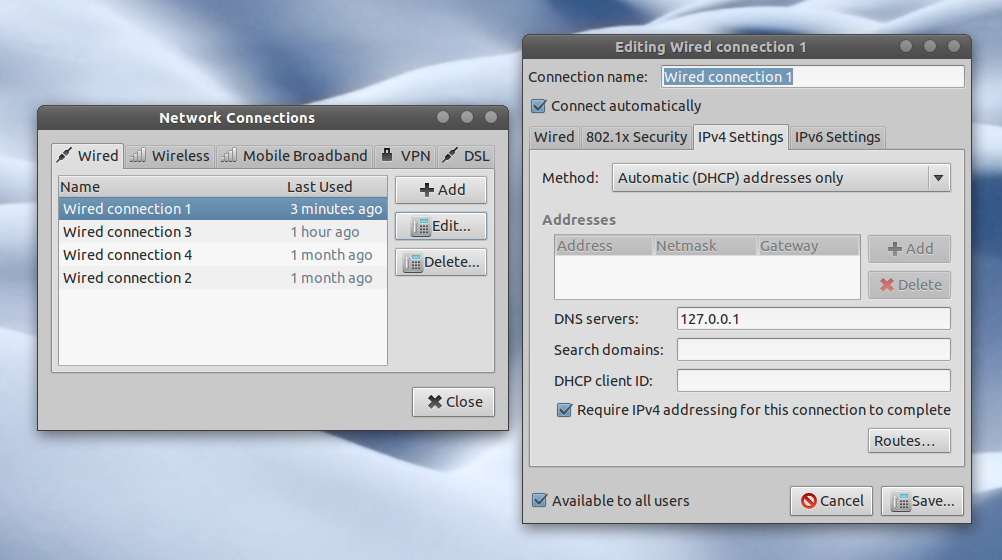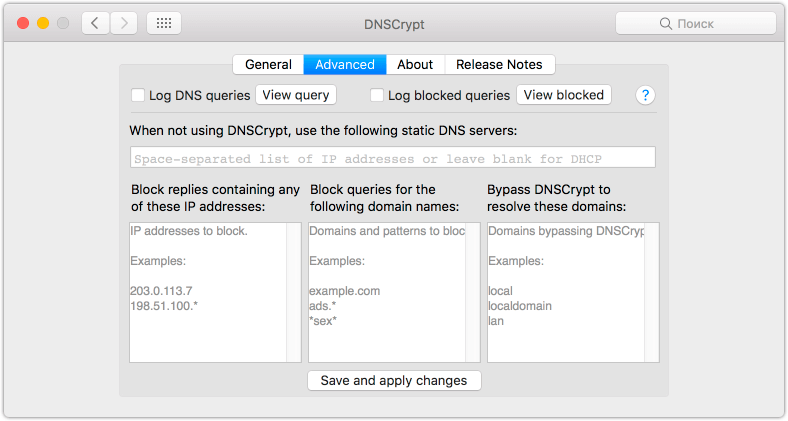

- #DOWNLOAD OPENDNS DNSCRYPT HOW TO#
- #DOWNLOAD OPENDNS DNSCRYPT VERIFICATION#
- #DOWNLOAD OPENDNS DNSCRYPT CODE#
- #DOWNLOAD OPENDNS DNSCRYPT TRIAL#

Set your provider_name especially if you’re planning to make the service public. You can also change the upstream_addr to point towards your internal recursive DNS server or leave it as is. You can find these at your UpCloud Control Panel. You should modify the listen_addrs parameter to your public IP address. Then to configure your DNSCrypt server, make the following changes to the parameters in the encrypted-dns.toml file. sudo cp /usr/share/doc/encrypted-dns/example-encrypted-dns.toml /opt/encrypted-dns/encrypted-dns.toml Copy it and make changes according to your needs. sudo dpkg -i encrypted-dns_0.3.22_b Configuring DNSCryptĪ sample configuration file is made available by the package. Go to the newly created directory and download the latest precompiled package. Commonly, you should set up your own username and firewall rules but we’ll skip them in this tutorial for brevity.įollow the steps below after initialising your UpCloud instance and securing it.įirst, make a directory to store files associated with the DNSCrypt server. Once your Cloud Server is up and running, connect to it over SSH to continue. You can find more in-depth deployment instructions in a separate tutorial.
#DOWNLOAD OPENDNS DNSCRYPT TRIAL#
If you are new to UpCloud, you can get started with the free trial by signing up. Log into your UpCloud Control Panel and click the Deploy server button. To get started, you will first need to deploy a Cloud Server e.g.
#DOWNLOAD OPENDNS DNSCRYPT HOW TO#
In this guide, we show you how to install and configure the DNSCrypt server on your Cloud Server. While DNSCrypt has not yet been standardized, fortunately, multiple implementations and a set of DNSCrypt servers are available. It uses cryptographic signatures to verify that responses originate from the chosen DNS resolver and haven’t been tampered with while still sending the messages over UDP.ĭNSCrypt provides increased privacy by encrypting the DNS message content and prevents DNS spoofing with authentication.
#DOWNLOAD OPENDNS DNSCRYPT CODE#
The source code is available on GitHub under the terms of a permissive ISC-style licence.DNSCrypt is an open specification for a method of authenticating communications between a DNS client and a DNS resolver.

The preview release of DNSCrypt is available to download from the OpenDNS web site. He did not, though, outline any plans to present DNSCrypt to standards bodies.

#DOWNLOAD OPENDNS DNSCRYPT VERIFICATION#
Ulevitch says the tool is a "technology preview" and that it should be complementary to DNSSEC, adding that encrypting all DNS traffic is "not the only solution, and there’s still an important place for verification and validation of domains like DNSSEC provides, but it’s a very strong first step". David Ulevitch, the CEO of OpenDNS, says that DNSCrypt is designed to address that shortcoming, noting that it's an implementation of the DNSCurve forwarder concept. By encrypting the exchange, OpenDNS hopes to make the "last mile" of DNS requests more secure.ĭNS Security Extensions (DNSSEC) makes the process more secure by adding authentication to DNS communications, but does not encrypt the actual exchanges. Normally, DNS information is exchanged between client and server as plain text which makes it vulnerable to snooping or modification and man-in-the-middle attacks. The tool is currently only available for the Mac, with a Windows version promised, and only works with OpenDNS's own DNS service. DNS service provider OpenDNS has announced a preview release of a new open source tool to improve internet security: DNSCrypt encrypts all DNS traffic between a user's system and a DNS server.


 0 kommentar(er)
0 kommentar(er)
